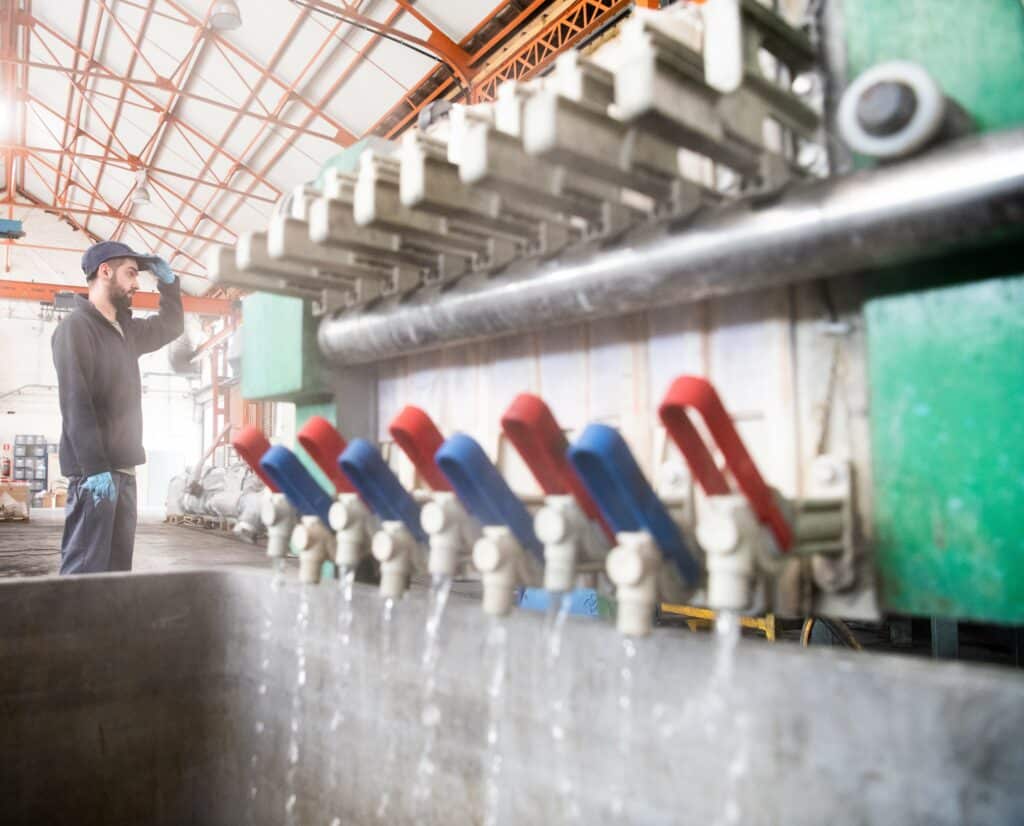Contact us
Hydrometallurgy
Hydro-metallurgical techniques bring together all of the techniques which aim to extract a metal, or a metal compound, from a material by means of operations involving solution annealing, solution purification, precipitation and the separation of solid and liquid phases. More generally, they can also be applied to the extraction and the production of non-metallic compounds.
The choice of the techniques implemented depends on technical-economic, but also environmental criteria. The dissolving can be carried out in acid mediums or alkaline (base) mediums. The choice of acids or alkaline substances is dependent on the material and the nature of the elements to be extracted, as well as on subsequent operations. The use of oxidising and reducing agents can, depending on the case, improve the yield or the selectiveness of the extraction. The dissolved metals can be precipitated, more or less selectively, by means of acid-base reactions, oxydo-reductions (electrodeposition, cementation, etc.) or the formation of insoluble compounds (sulphurs, sulphates, phosphates, etc.). They are then recovered by the separation of the liquid and solid phases.
Looking for particular properties for the finished goods, the new demands in terms of purity, the growing complexity of processed materials and environmental constraints are all factors which have encouraged the development of hydrometallurgy over the recent decades.
Thanks to its expertise in this domain, the CTP is more than capable of studying, proposing, optimising or simply evaluating hydro-metallurgical techniques by means of tests carried out in the different mediums the materials are subjected to, either at laboratory level (reactors and autoclaves) or in its pilot plant.

Our expertise
In the Extractive Metallurgy
All
Our expertises